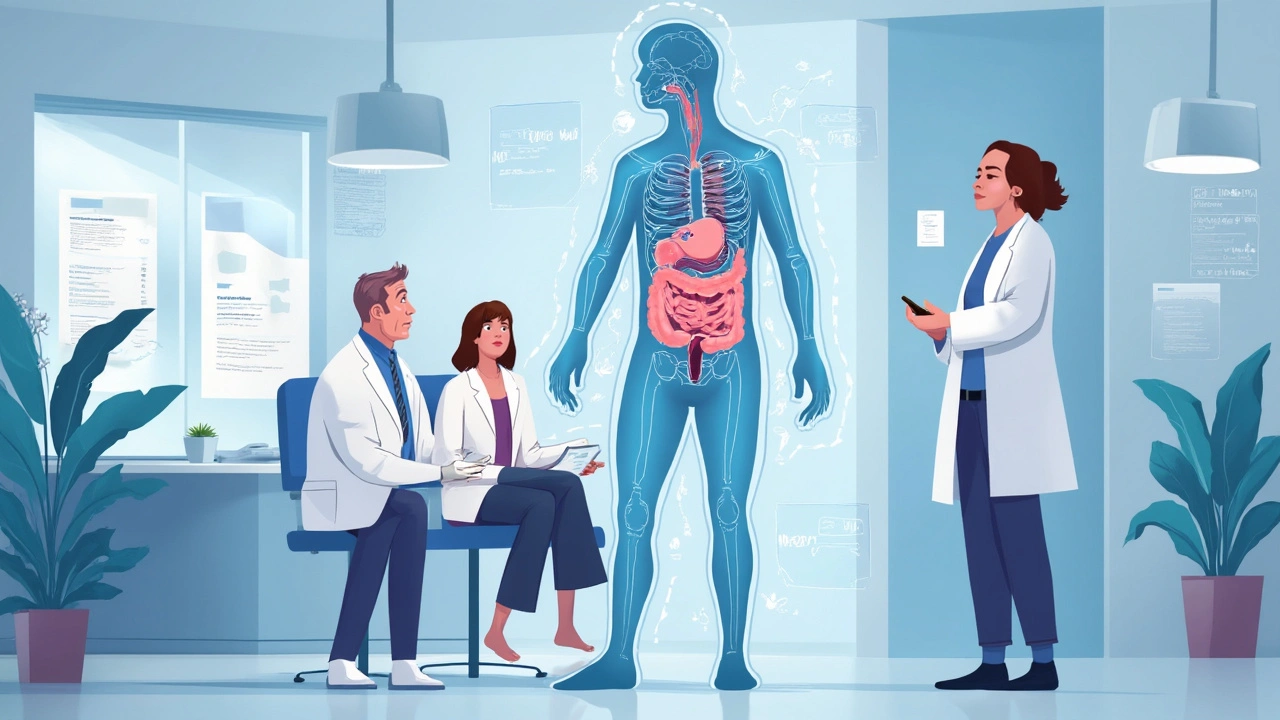Hydration: simple, practical tips that actually help
Hydration isn't just drinking water when you're thirsty. It affects energy, headache risk, digestion, bladder function, sleep, and how some medicines work. This page pulls together practical advice and links to related articles so you can manage fluids without guesswork.
How much and how to check it
A good starting point is to sip water regularly through the day instead of downing a big bottle all at once. Urine color is a quick check: pale straw is good, dark yellow can mean you're low. Thirst is useful, but it lags—if you feel dry, you’re already partly dehydrated.
For most adults, aiming for 1.5–2.5 liters (50–85 oz) of total fluids daily works, but activity, heat, and illness change that. If you sweat a lot or have vomiting/diarrhea, add electrolyte drinks or an oral rehydration solution—plain water alone can dilute salts too much in those situations.
Medications, conditions, and hydration
Some medicines change how your body keeps or loses water. Diuretics (water pills) increase urine and raise dehydration risk. Read our piece "Loop vs. Thiazide Diuretics" to see how different diuretics affect fluid balance and what to watch for.
Alcohol and caffeine can also change fluid needs—alcohol is a clear diuretic and increases risk of being low on fluids; caffeine causes mild diuresis but people develop tolerance. Our article on "How Alcohol and Caffeine Affect Imipramine Metabolism" explains interactions that matter if you're on meds that affect the heart or brain.
Bladder issues and obesity change hydration choices. For example, reducing fluid intake to control leaks can cause constipation or worsen dehydration. Check "Understanding the Impact of Obesity on Bladder Health" for tips that balance bladder control with staying hydrated.
Migraine sufferers often find headaches get worse when they’re low on fluids. If you use migraine meds like sumatriptan, simple hydration habits can reduce triggers—see "Imitrex: Fast Relief for Migraine Sufferers Explained" for context on symptom triggers and medication use.
Sleeping well and hydration are linked: poor sleep can change hormones that regulate thirst and kidney function. Our "How to Track and Analyze REM Sleep Patterns" article helps you spot sleep issues that might be connected to your fluid habits.
Practical checks: weigh yourself daily if a provider asks, watch urine color, add electrolytes after heavy sweating, and slow down drinking if you have heart failure—only do adjustments after speaking with your clinician. If you feel faint, confused, have very dark urine, or can’t keep fluids down, seek medical care.
Want more? Browse related posts on this tag for deep dives into diuretics, bladder health, sleep, and medication interactions. Small, consistent changes to how and when you drink often make the biggest difference.
